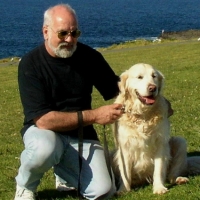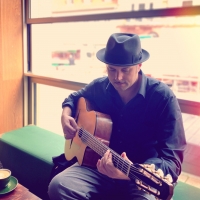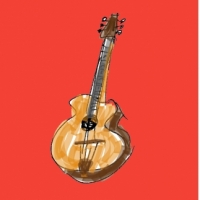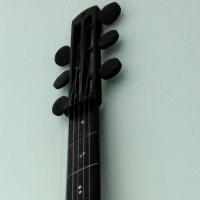DjangoBooks.com
Welcome to our Community!
Categories
- 20K All Categories
- 1.1K General
- 485 Welcome
- 60 Archtop Eddy's Corner
- 147 CD, DVD, and Concert Reviews
- 385 FAQ
- 26 Gypsy Jazz Italia
- 27 Photos
- 209 Gypsy Picking
- 21 Unaccompanied Django
- 15 Pearl Django Play-Along Vol.1
- 17 Gypsy Fire
- 45 Gypsy Rhythm
- 1.4K Gypsy Jazz University - Get Educated
- 131 Gypsy Jazz 101
- 231 Repertoire
- 229 History
- 709 Technique
- 51 Licks and Patterns
- 6 Daniel Givone Manouche Guitare Method Users Group
- 20 Eddie Lang Club
- 1.3K Gypsy Jazz Gear
- 816 Guitars, Strings, Picks, Amps, Pickups and Other Accessories
- 465 Classifieds
- 52 Recording
- 64 Other Instruments
- 18 Violin
- 5 Mandolin
- 23 Accordion
- 7 Bass
- 11 Woodwinds
- 352 Gypsy Jazz Events
- 145 North America
- 112 Europe
- 95 International
In this Discussion
Who's Online (0)
Portuguese Guitar - or Guitarra Portuguesa
 ChrisMartin
Shellharbour NSW Australia✭✭ Dupont, Favino, Petrarca, Gitane, Hofner, Burns, Kremona Zornitsa, Fender, Epiphone
ChrisMartin
Shellharbour NSW Australia✭✭ Dupont, Favino, Petrarca, Gitane, Hofner, Burns, Kremona Zornitsa, Fender, Epiphone
I wandered off topic a little in a conversation with AndyW over in the 'Favorite non-gypsy jazz artists' thread and AndyW suggested maybe we need to start a new conversation about the Portuguese Guitar so here goes; I am not sure how many on here are fans or even if it fits in a Gypsy Jazz environment but I will justify my interest by saying it is just another European variant on the migration of the guitar and related instruments from the east, although even that is not quite true.
The Portuguese Guitar looks at first glance like a large mandolin and has twelve strings, the lower six tuned in octaves, the three higher pairs in unison. It has been suggested that it developed not from any connection with neighboring Spain but from the cittern introduced from England by wine traders, but whatever it soon found its own voice. To confuse further, there are slight differences between the Lisboa and the Coimbra guitars. Portugal has historically been less of a western part of Spain than an outward looking nation of explorers with cultural links to colonies around the world since the late 15th and 16th centuries, the great days of explorers De Gama and Magellan.
Enough history. So how did I come across this funny foreign banjo ?
Living in England one can easily get tired of the weather, cold and damp much of the year, and since the advent of cheap flights in the late '60s it became easy to head for sunnier corners of Europe only a couple of hours away, and while Spain and Greece certainly had their charms for some reason I always felt at home in Portugal. If it was just a week or two on a sunny beach we were after we headed south to Faro airport and drove a rented car along the coast to a rented villa with a nice garden and a pool, or a beachside apartment. If it is history and culture you seek head for Lisbon or other points north; Sintra, Coimbra, Porto etc ( I never got as far as the latter). On one such trip in the mid-seventies a group of us were staying at a huge whitewashed villa in a secluded valley to the west of Armação de Pêra on the south coast and the next town west of there is Porches. Quite by chance a few of us who were in the habit of exploring for new restaurants to try came across a big old barn like restaurant, all whitewash and timber beams, called 'Porches Velho' and decided to give it a try. Great place, and great food but the surprise to me was there was a cabaret, if you can call it that, consisting of the couple I took to be the owners of the place, taking turns to sing, accompanied by two guitarists, one with a regular Spanish guitar, the other with this odd 'mandolin-on-steroids'.
This was my first taste of Fado. I loved it. I also bought the cassette tape they hawked around the tables after, still have it and have transferred it to mp3.
A few days later someone noticed and ad for a Beer Festival at nearby Silves castle so off we went for another afternoon's fun. The ancient castle stands atop a quaint village in the hills a few miles north of Portimão and what passed for a 'Beer Festival' was actually a huge outdoor party with local folk music and dancing, huge steaks on the BBQ and a couple of cold beers thrown in. But the star attraction topping the bill was Rodrigo one of the top Fado singers of the time, again accompanied by the two types of guitar, Spanish and Portuguese.
Anyway, by now and through the following years I sought out whatever I could find whenever I could get to Portugal. The small bars and Fado houses around the Alfama district of Lisbon were always worth a visit. I picked up a bit of the history and found recordings by Amália Rodrigues regarded as the greatest of all Fado singers. I even found a Portuguese restaurant in Beauchamp Place, London, just around the corner from Harrods which also had live Fado music.
In all that time I always struggled to understand the language, reading and writing is not so bad for anyone familiar with other Latin based words but the pronunciation makes it difficult to understand. I think I probably learned more from the Brazilian singers like Astrud Gilberto, their pronunciation is softer and clearer. Anyway, even if Fado singing is not your thing there have also been many great Guitarra Portuguesa soloists. Soloists on CD for a good introduction to the style include Carlos Paredes, Custodio Castelo, Armenio de Melo and Jorge Fontes
Fast forward fifteen years or so and here is the real Gypsy Jazz connection.
Fapy Lafertin included a couple of examples of the Portuguese Guitar on his 'Fleur de Lavande' CD from 1991, the notes accompanying it say he taught himself the instrument, never having even been to Portugal (at that time at least). This was followed by occasional tracks on later CDs.
I first saw Fapy play in London at the Jacksons Lane Theatre in Highgate in about '94 and sure enough he brought his Portuguese guitar along for a couple of tunes. And now a brief, amusing tale:
A couple of years later he played the same venue but by the time the band stopped for a break I had seen no sign of the Portuguese guitar so I approached the band who were at the bar. Embarrassingly because he did not speak on stage I had thought Fapy knew little or no English so I just asked Dave Kelbie if Fapy was going to be playing any of the Portuguese tunes that night, and Fapy hearing what I had asked explained in perfect English that no, he "had not brought it on the tour this time" but thanked me for my interest.
So anyway, sorry to ramble on a bit, but if it is good enough for Fapy, it is good enough for all of us.
In that other thread AndyW mentioned Carminho and although familiar with Ana Moura and Mariza I had not kept up to date with the younger Portuguese stars so looked her up. The first song of hers I found searching Youtube featured a blistering solo by the great Luis Guerreiro on Portuguese Guitar.
Another great example of Luis's playing here:
So if any of that has aroused any curiosity there are many more delights to be found out there......














Comments
@ChrisMartin
Thank you for the post!
The portuguese guitar is a close relative to another cister, the german "Waldzither" (forest cister), built in different sizes, with different shapes and tunings:
Hamburg model.
A rather young instrument is the "Irish bouzouki", developed from the greek bouzouki (and the portuguese guitar):
My recollection is that the Irish instrument was indeed developed from examples of the Greek bouzouki brought back by tourists. (I myself brought a bouzouki back from Athens to the US in 1965--they were readily available and inexpensive.) The bouzouki fit well into Irish bands, and eventually builders started adapting the design from the bowl- to flatback version. In the UK, Stefan Sobell produced what he called (with some historical justification) a cittern. (He discusses how this came about here: https://www.sobellguitars.com/how-i-started-my-first-cittern.) The other obvious cousins of the Irish instrument are from the mandolin family, specifically the octave mandolin, which can have a flat or carved back.
The "guitarra" part of the Portuguese instrument's name is a leftover from the 18th century name for a cittern-decended instrument--what we call a guitar has a different evolution.
@Russell Letson
You are right, the greek bouzouki influence on irish folk is dated from the 60ies; and 1970 instrument maker Peter Abnett built a bouzouki with "hybrid" body (staved back and straight sides https://en.wikipedia.org/wiki/Irish_bouzouki). Sobell built his fist cittern in 1973. Mandolins and mandocelli certainly are cousins too.
But the greek bouzouki's body is a bowl made of slices, the irish bouzouki's body is a crate (I don't know the english words for the two types of instruments from the lute family, in Germany they are called "Schalenhalslaute" and "Kastenhalslaute" - "bowlnecklute" and "cratenecklute"?). So the irish bouzouki historically owes his existence more to the greek one than to his portuguese cousin. As an instrument, I think the relation to the portuguese guitar with flat bottom is closer than to the greek bouzouki with round and sliced back.
But I should correct my previous post.
the Greek bouzouki influence on Irish folk is dated from the 60ies
I recall Donal Lunny of Planxty popularised it back then after changing the tuning of the bottom strings as explained in the excellent Wikipedia article you cite @Willie. My band at the time played support on a few gigs with Planxty and they were top class.
Waldzither, this is what it sounds like:
Some interesting diversions there and while the Bouzouki can sound similar to the Guitarra Portuguesa I can't hear any similarity to the German Waldzither in that example. The latter sounds to me more like a regular mandolin even if the shape does resemble the Portuguese instrument and they shared similar type tuners. These are known as Preston tuners, or sometimes 'watch-key' tuners and the strings are made to an exact length with a loop at both ends. The tuner is wound with a key to pull the string up a finely threaded rod to the correct tension.
All of these other instruments have their respective tunings and variations in construction, but some particular aspects of the Guitarra Portuguesa that make it sound unique are the tuning and the way it is strung; the bottom three pairs have the higher string above the lower one so is struck first, the opposite of a regular 12-string guitar. Also the player uses two picks which are shaped to fit behind the nail of the thumb and first finger and held on with a band. These picks also have a squarer edge in contact with the string, so not at all like a normal guitarist's finger picks. Sorry if I am not describing that well, but you can see better on some close-ups on Youtube.
The standard Lisbon style instrument more commonly used to accompany Fado singers has a string length of 440 to 460mm and is tuned b/b, a/a, e/e, B/b, A/a, D/d, while the Coimbra version was supposedly used for more sophisticated compositions and has a scale length of 470mm and is tuned a step lower giving it a bassier sound.
Another of the players I found early on was Alcino Frazão; I picked up a cassette I found just by chance at a gas station. Trying to find out more about him later on led to the unfortunate discovery that he died young in a car accident. Nothing of his has been available on CD so I have transferred that one to mp3 too.
Anyway, this track is his version of a popular tune, a version of Partida, or the Chilean Waltz, that seems to be part of everyone's repertoire; it clearly demonstrates the distinctive ringing tones that separates the Guitarra Portuguesa from the other instruments mentioned above. Frazão used the Coimbra tuning.
I was smiling seeing Fapy playing with a regular single guitar plectrum in those videos - it's nice music, and I've done the same thing when picking out chord & scale shapes. Not sure what tuning he's using, either, might he sneakily be using a transposition of regular gypsy guitar EBGDAE ??
---
my working guitarra is the cheapest Lisboa model available from Amazon UK , the APC GF306 LS, it's made in Portugal and it's fine. ( APC also make Selmer style gypsy guitars) My other guitarra is a smaller vintage 1910/1920's Abílio Godinho, handmade in Lisboa, and needing some restoration , mostly on on the frets / fretboard. Trouble is the fretboard radius is much tighter than any guitar, so commonly available fret cauls and sanding blocks are no use - I'll need to make/modify something bespoke. it has bar frets too, so I plan to fill the slots with veneer and recut for fret tangs on mandolin-sized fretwire. I paid too much for it, and I'll fix it "One day" ;-)
To be honest, I haven't played much guitarra Portuguesa in the last few months - it's been very much a "he also plays a bit of" instrument this year - but I do use "As Unhas" - the shaped plastic fingernails which attach under the real nail. There are a few method books I've picked up - mostly imported, along with strings, string winder, unhas, etc from online music shops based in Portugal: I definitely do recommend the Eurico A Cebolo series of books ...don't call him Eric Onion to his face :-) ... and they are tri-lingual, in French, Portuguese and English. The "Portuguese guitar chord bible" is not worth the new price (~£21), primarily because it's not kind of instrument where you're often playing big jazzy 13b5 chords across 6 (i.e. 12) strings. The "Fado Portugues" book might be more useful for repertoire with an aspiring vocalist, but doesn't get into guitarra technique.
One quick point on the accompanying guitars - although they resemble Flamenco guitars, normally in Fado , they are fully steel-strung and are correspondingly built & braced slightly differently. They are known as the "Violão".
---
Just a few modern guys I'm listening to - all of them are often seen playing the slightly larger Coimbra-sized guitars, but tuned to the higher Lisboa afinacão. :
The aforementioned Luís Guerreiro - [here with his Oscar Cardoso guitarra Portuguesa which is fully open-backed, and will make you think "wtf?" when you see it at first. link: https://oscarcardosoguitars.jimdofree.com/guitars/guitarra-portuguesa-portuguese-guitar/ click through for great demo videos & cool guitar designs]
---
here's Luís with another fadista with a beautiful voice, Katia Guerreiro (no relation, afaik)
---
Angelo Freire, here with Ana Moura (some may have heard Ana's work with the Rolling Stones):
---
teenager Gaspar Varela - recently seen on worldwide tour with Madonna, who has a home in Lisbon and apparently incorporated elements of Fado & Portuguese folk music in her recent album, although I can't hear it - (I can't even listen to it , tbh - Madge sure ain't in the same vocal league as these fadistas. )
---
I'll bring this post to a close with Marta Pereira da Costa - more of a soloist in the Coimbra-style than a fado accompanist, she's a super-talented musician.
Marta Pereira da Costa… looks and plays like an angel….
I hope an old white fella can still say that…?
Hey, Bill da Costa Williams!
I’m in love with your daughter!
Will
Edgar Degas: "Only when he no longer knows what he is doing does the painter do good things.... To draw, you must close your eyes and sing."
Georges Braque: "In art there is only one thing that counts: the bit that can’t be explained."
Thanks AndyW, some great music there. I just posted the above as a fan who was lucky enough to get to Portugal many times and found this music; I did not realise our AndyW was also a player so I will bow to his expertise on the subject. Any other players out there?
Google sent me this article: